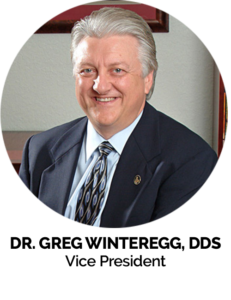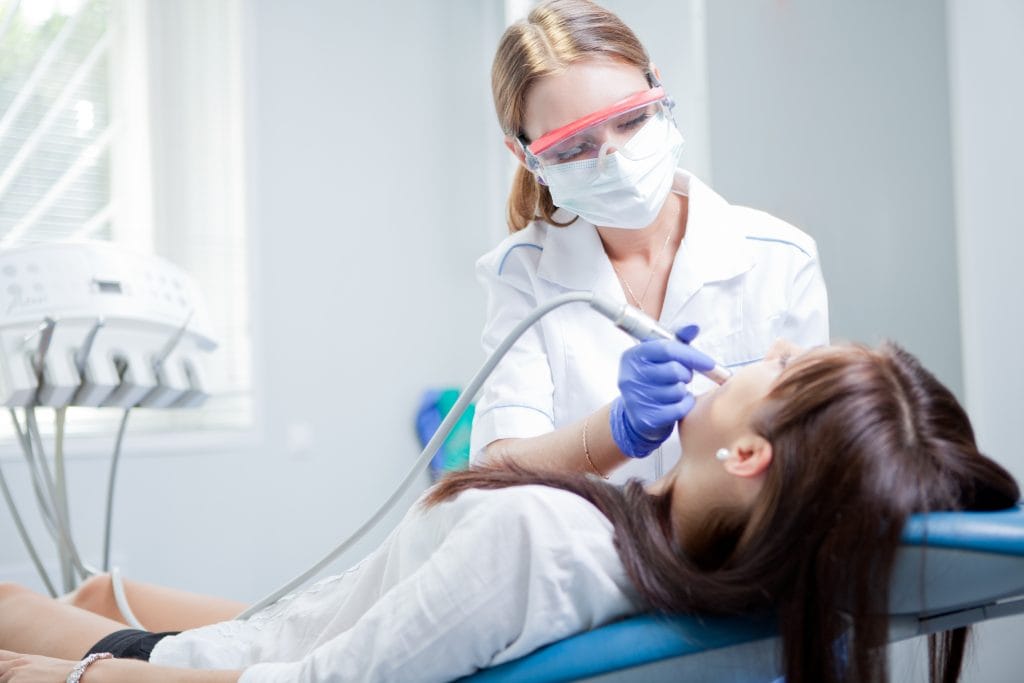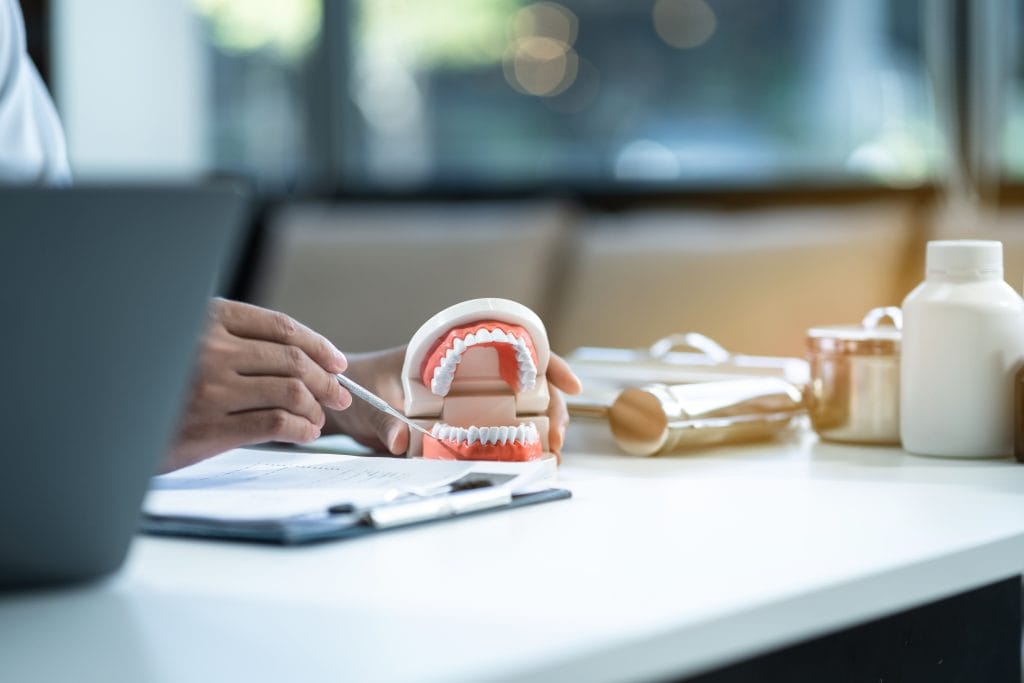Last updated on April 3rd, 2021 at 10:19 am
 Most doctors have at least some concept that that they should avoid heavy dental/medical terminology when presenting treatment to patients. But there is actually more to this subject than would appear at first glance. In fact, the way that you use technical terminology can have quite an impact on case acceptance.
Most doctors have at least some concept that that they should avoid heavy dental/medical terminology when presenting treatment to patients. But there is actually more to this subject than would appear at first glance. In fact, the way that you use technical terminology can have quite an impact on case acceptance.
There are actually two sides to this–the exam and the actual treatment plan presentation/consult. And each should be handled very differently (what I suggest about exams may surprise you).
Of course, there’s more to case acceptance than knowing which dental terms to say or not to say, which is why I recommend coming to the MGE Communication and Sales Seminars, or if you can’t make those seminars, I recommend signing up for DDS Success, our online training platform. We have 3 courses and 30 lessons dedicated to case acceptance for the doctor, OM, treatment coordinator, financial coordinator and hygienist!
Also, we have a FREE e-book filled with the best tools on how to boost your case acceptance. There is a long, long list of MGE clients who have added $10,000, $20,000 or even $50,000+ a month to their collections by using these tools. You can download the e-book here.
During the Treatment Presentation
When presenting treatment, you want to achieve understanding on the part of the patient. You want the patient to understand exactly what they need, why they need it, and the importance of getting it done now. Real understanding on the part of the patient leads to case acceptance.
(Related: 3 Tips for Fine-Tuning Your Case Presentations)

When you use terminology the patient doesn’t understand, you throw this understanding out the window.
If you were to watch the patient closely, you could actually see the exact point where they go “blank” and stops listening to what you are telling them–it will normally be when you start using terminology that he or she doesn’t understand! And that’s when the patient writes it off as “technical stuff” that is over their head and isn’t important to them.
This is very simple to change. Just alter your wording to make sense to the average layperson. You likely already do this to some degree, but you may need to take this even further. Working every day in this industry for years, we can forget how uneducated the average person is on the subject of dentistry.
(Related: 3 Ways to Boost Case Acceptance)
As examples:
“Carious Lesion” becomes “cavity.”
“Periodontal Disease” becomes “bleeding gums and bone loss.”
“Periapical radiolucency” becomes “pus pocket in the bone.”
We don’t have to use big words to try to impress the patient that we know what we are talking about. They usually assume that because we have a “D” after our name.
You can also always explain what these terms really mean and then use the term thereafter since they will now understand what it means.
During the Exam

During exams you would have a very different approach. You don’t want to use any dental terminology that the patient could possibly understand. Yes, I know that this seems to fly in the face of what I was saying earlier–but there’s a very good reason for it:
(Related: Boost Practice Performance by Refining Your New Patient Exam)
You don’t want the patient pondering/worrying/wondering about the treatment he or she might need before you’ve done an official diagnosis and consult. If the patient hears the words “root canal” or “crown” or “extraction” during the exam, there’s a good chance that it’s going to set his mind off about the possibilities–and patients usually aren’t too excited about these possibilities. So save it for the consult when you can introduce their treatment plan to them properly.
You don’t know what’s going on in a patient’s mind during the exam, but if they start hearing all types of procedures during the exam, there’s a good they’re thinking things like: “Oh gosh, my mother had a root canal and she said it’s one of the most painful things she’s ever done!” Or “Uh oh, I’m gonna have to get shots. I hate shots!” Or “All this work is going to be expensive…!” Or “Does this guy want to yank my tooth out?!”
(Related: 7 Steps to Comprehensive Case Acceptance – Part 1)
Unfortunately, I’ve seen plenty of cases where the doctor did this during an exam, then scheduled the consult for another day only to have the patient cancel the consult.
The handling for this is also very simple. Before I started an exam, I would tell the patient, “Mrs. Jones, I’m going to do a complete exam on your teeth, gums, cheeks, tongue and jaw joint. Jenny and I are going to use a shorthand of terms that only she and I will understand. This makes the exam go quicker. So you won’t understand anything that she and I are discussing. I promise that before I do any treatment, I will discuss your options with you and exactly how much it will cost.”
Then I would use abbreviations and code language that I and my assistant understood but went right over the patient’s head. I used “RC” instead of “root canal,” “CR” for a “crown,” “EXT” for an “extraction,” “OS” for a consult from the oral surgeon, etc. Use anything that will communicate to you and your assistant without giving the patient a clue as to what they need.
(Related: Free CE Seminar: The Effective Case Acceptance Seminar)
Then when the exam was done and I was doing the consult, I would explain the case to them in a way that they could understand.
And that’s my tip for today! And as I mentioned at the beginning of this article, case acceptance is a large subject and there’s a lot more you need to learn to significantly increase your treatment acceptance rate in the long-term – and it’s absolutely worth putting in some effort to gain proficiency over the subject. Becoming better at getting patients to accept comprehensive treatment plans is the best way to increase productivity, revenue, and make your career more rewarding. I highly recommend looking into the MGE Communication & Sales Seminars or DDS Success for this reason. Give us a call at (800) 640-1140 for more information.
Dr. Gregory Winteregg provides this general dental practice management advice to furnish you with suggestions of actions that have been shown to have potential to help you improve your practice. Neither MGE nor Dr. Gregory Winteregg may be held liable for adverse actions resulting from your implementation of these suggestions, which are provided only as examples of topics covered by the MGE program.

